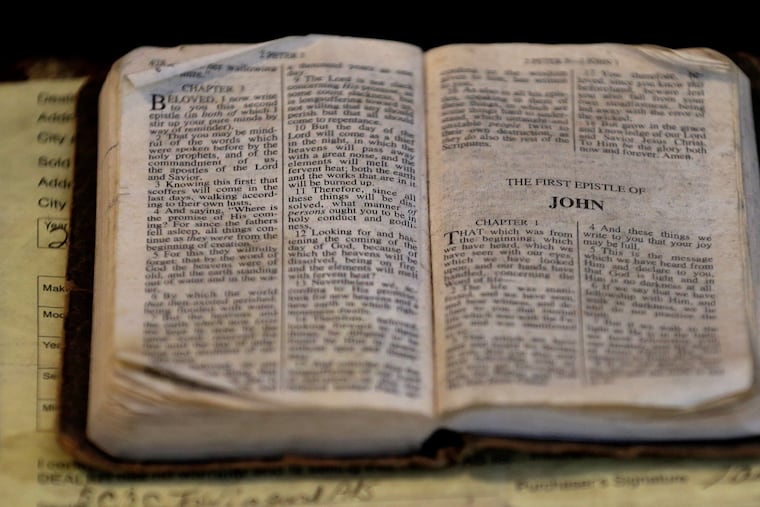‘Bible business has really gone soft’: Philly printer to lay off 174, shut plant by Christmas
A Philadelphia enterprise that printed more than a billion Bibles since its founding during the Civil War says its Northeast Philadelphia plant will be shut by Christmas.

A Philadelphia enterprise that printed more than a billion Bibles since its founding during the Civil War says its Northeast Philadelphia plant will be closed by Christmas.
LSC Communications of Chicago plans to shut the printing plant at 11311 Roosevelt Blvd. and lay off 174 workers. The company is consolidating Bible production at another plant it owns near Crawfordsville, Ind., and moving some of the Philadelphia presses there, according to people who work at the plant.
“They say the Bible business has really gone soft, and their warehouses are full,” said Wayne Cox, business representative for Graphic Communications Conference-Teamsters local union 4-C, based in Clifton Heights, which represents 150 of the workers, along with printers at other companies in central Pennsylvania. LSC didn’t reply to an inquiry seeking comment.
The one-story Roosevelt Boulevard plant was built by National Publishing in 1997 to replace its landmark loft printing factory at 24th and Locust Streets facing the Schuylkill in Center City, which is now an apartment building.
Cox said he started on the line at National Publishing in 1973. It seemed a job with a secure future, he noted: “The Bible is a No. 1 seller.”
The Philadelphia plant printed Bibles for Tennessee-based Bible distributor Gideons International. The company had also published medical books and titles from its own small publishing line.
Gideon Bibles were long a fixture in U.S. hotel rooms and other public places. But with the decline in U.S. churchgoing and a rise in travelers from non-Christian countries, Holy Scripture may be less in demand in some places.
The Borgata, Atlantic City’s largest hotel-casino, made headlines when it declined to stock rooms with Gideon Bibles in 2003. And the wide availability of online books has reduced demand for physical printing.
National was acquired by Massachusetts-based Christian-oriented publisher Courier Corp. in 1975 but continued to do business under its old name. Courier was bought by printer R.R. Donnelley in 2015 and spun off as part of a new company, LSC Communications, in 2016.
LSC had planned to merge with rival Quad Graphics last year, but that merger was blocked by the U.S. Department of Justice on antitrust grounds — the fear that the resulting company would dominate what’s left of the national commercial printing industry and could force higher prices and profit margins. Quad Graphics has also closed plants in the Philadelphia area in recent years.
Cox said the union negotiated extra severance from the company beyond that already guaranteed in the Teamsters’ contract. The union leader added that young press operators are now seeking jobs outside the printing industry, since chain newspapers have shut most of their plants and consolidated printing at a few large locations.
National Publishing traced its history to the time when Philadelphia was a mass-market publishing center, home of the Saturday Evening Post and other national magazines, as well as pioneering magazine advertising firm N.W. Ayer and Son.
National Publishing Bibles at first were sold by traveling salespeople. Under the Thomas family, which owned the company from the First World War until its sale to Courier, the company built up a collection of historic Bibles that impressed visitors.
The company employed 320, a little more than double its current staff, when it moved to Northeast Philadelphia 22 years ago.